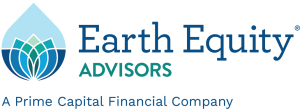The Best Place To Start When Financially Planning Your Future
Someone recently asked me, “Where do I start with financial planning?”
There are many facets to financial planning and it can be overwhelming at times, but we all have to start somewhere.
First, develop a plan to get out of debt.
If you are not in debt, then you can skip to step two. If you are in debt, then you need to develop a plan to pay off loans due and other debts. If you only have a small amount of debt and/or if you have the discipline to create and follow a budget then you should be able to make a basic plan in several hours (a good introductory budgeting tool is mint.com). If your situation is more complex, you may need to consult a financial advisor or consider some online resources. Here is a great first resource for trying to move past debt (https://www.nerdwallet.com/blog/how-to-handle-debt/)
Second, create an emergency fund.
The general recommendation is to have 3 to 6 months’ worth of living expenses in an emergency fund. What does that mean? Cash in the bank. You need liquidity when it comes to an emergency fund. Three months would be appropriate if you have more than one income earner, multiple sources of income, and/or some other significant assets. Six months is recommended for families with only one income earner. Some people prefer to have more cash on hand and some circumstances may dictate that, but as a baseline 3 to 6 months is a good place to start.
Third, consider your life insurance needs.
In some circumstances, this may be the number one priority, but start with the understanding that life insurance should always be there to address a need. A classic example of insurance need is this: a young family has one income earner and one stay-at-home parent. If the working parent dies or is severely injured and cannot collect any form of disability payment, the surviving parent would need resources to cover expenses for the family. Another classic need, that often overlaps with the previous example, is a couple with mortgage debt. Life insurance can potentially be used to eliminate that debt after a death. It is also important to consider disability insurance for these examples as well. And finally, there may be other needs to address such as the need for liquidity if you’re tied up in delays over an inheritance, or business partnership dispute. Insurance can help. These need to be discussed with a financial advisor or insurance agent. However, if you do fall into one of the first two examples mentioned then you need to consider life insurance a top priority.
These essential steps are the first you can take on the journey to financial independence. My experience is that starting is the hardest part, so set aside a free day or weekend with your family to sit down, plan, research, and set up what you need. These few hours could save you months or years of stress and worry.
EARTH EQUITY ADVISORS IS A REGISTERED INVESTMENT ADVISER. INFORMATION PRESENTED IS FOR EDUCATIONAL PURPOSES ONLY AND DOES NOT INTEND TO MAKE AN OFFER OR SOLICITATION FOR THE SALE OR PURCHASE OF ANY SPECIFIC SECURITIES, INVESTMENTS, OR INVESTMENT STRATEGIES. INVESTMENTS INVOLVE RISK AND UNLESS OTHERWISE STATED, ARE NOT GUARANTEED. BE SURE TO FIRST CONSULT WITH A QUALIFIED FINANCIAL ADVISER AND/OR TAX PROFESSIONAL BEFORE IMPLEMENTING ANY STRATEGY DISCUSSED HEREIN.







